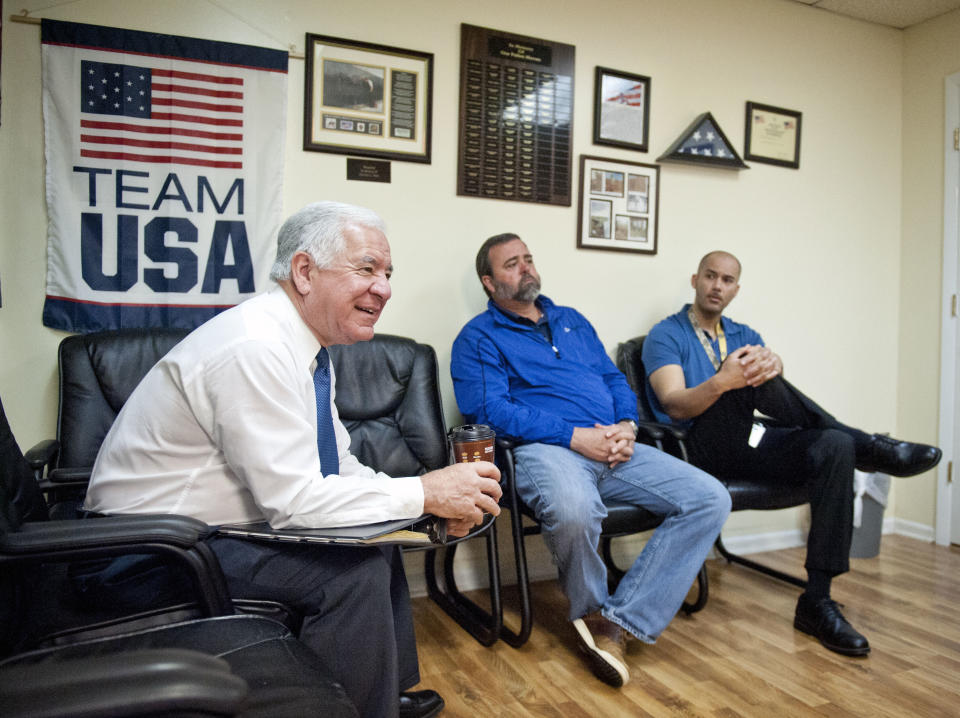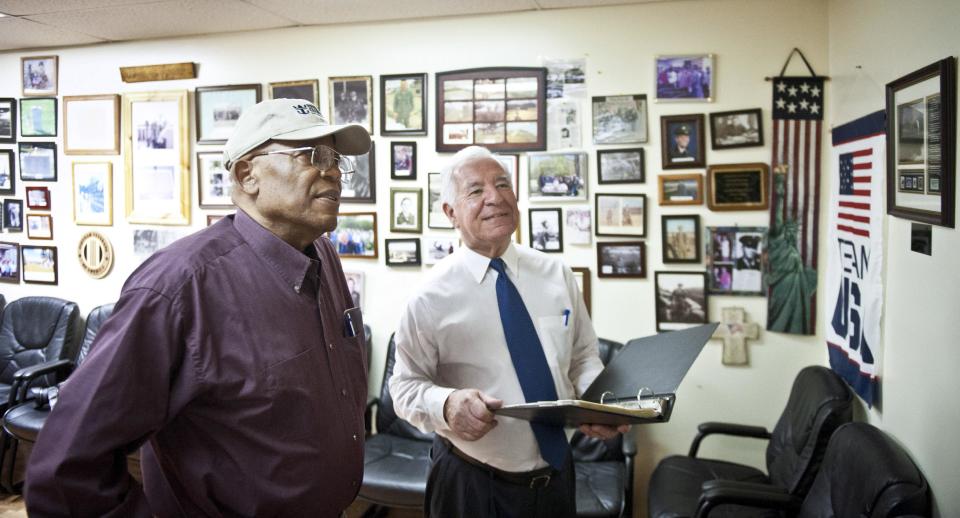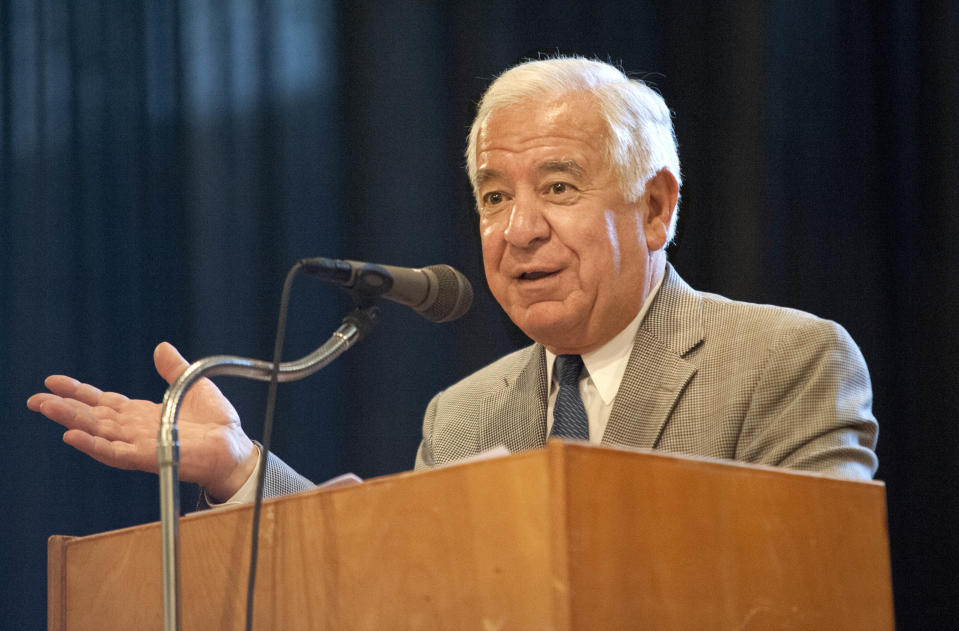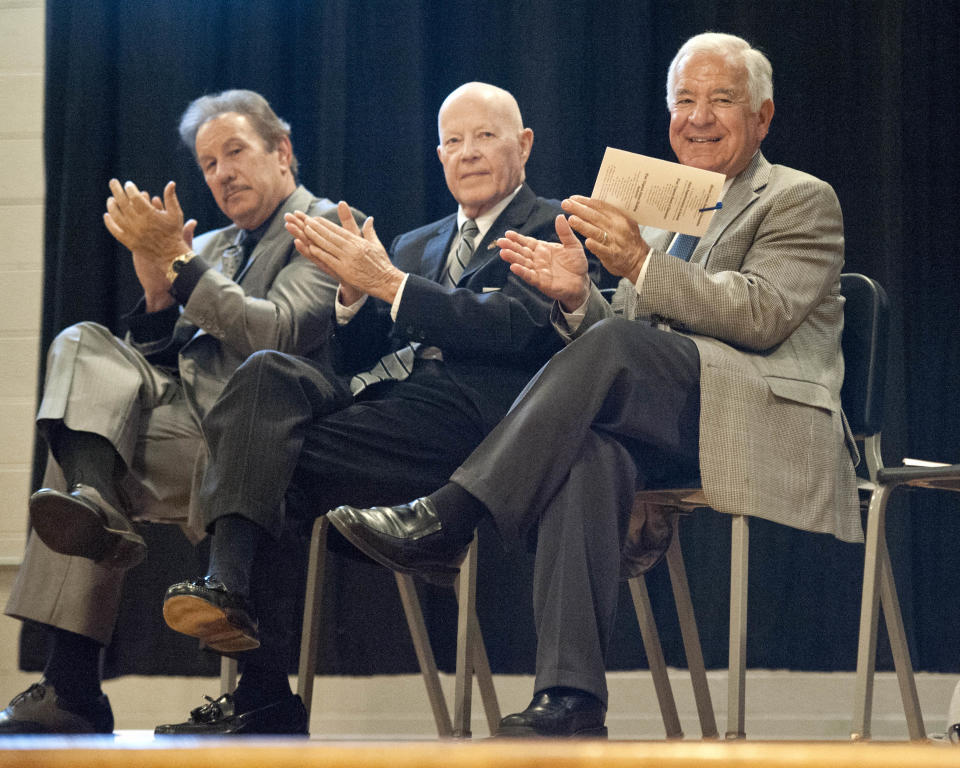Longtime W.Va. congressman faces tough re-election
PRINCETON, W.Va. (AP) — In a state where Republicans are breaking losing streaks that predate the Eisenhower administration, a Democratic congressman who's served nearly 40 years is one of the GOP's top targets this election year.
Since 1977, U.S. Rep. Nick Rahall has represented the 3rd Congressional District, which snakes around the southern part of West Virginia like a crooked smile.
Tapping into resentment over the health care law and a general dislike of President Barack Obama, Republicans hope a former Democrat in this once-Democratic stronghold will oust Rahall.
Rahall probably will face state Sen. Evan Jenkins, who left the Democratic Party last year to run for Congress as a Republican. In the May 13 primary, Rahall is expected to win easily against a retired Army officer, Richard Ojeda.
Americans for Prosperity, funded by the billionaire Koch brothers, has paid for TV and radio ads criticizing Rahall's vote for the health law. Rahall, 64, said he'll rely on person-to-person contact to defend himself.
"Obviously I can't compete dollar-for-dollar with the Koch brothers and the out-of-state billionaires that are going to be pummeling the airwaves," he said after a recent event in Princeton. "So I believe in the old-fashioned way, getting out and using shoe leather, working hard, as I have always done."
Jenkins, 53, also is getting his share of criticism in advertisements paid by outside interests, including the House Majority PAC, an outside group that supports Democrats.
Tom Broyles, who oversees school building projects in Mercer County, in the southern part of the district, said Rahall always has helped the community and deserves a new term.
"I'm scared to death the Republicans will take over the state," he said.
But Kenneth Lilly, a landlord living in Princeton, said Rahall doesn't represent the people of the district.
"At this point, any change would be an improvement," he says.
Obama is unpopular because of the health law as well as environmental policies he backs that are viewed as anti-coal, a dominant industry in the state.
He lost all 55 counties in the state in the 2012 general election. In the Democratic primary that year, an imprisoned felon, Keith Judd, got nearly 41 percent of the vote.
Jenkins, who voted in that election, said he didn't cast a ballot for president. "I would not vote for a convicted felon," he said with a laugh, "and could not vote for Barack Obama."
Rahall is quick to stress areas of disagreement he has with Obama, in sync with his district: "I'm pro-life, pro-guns, pro-school prayer."
Churches dot Princeton and many display anti-abortion signs, such as one that says, "Pro-life is the radical idea that babies are people." Downtown, a bumper sticker in a window describes "authentic marriage" as "one man-one woman."
At an elementary school dedication, Rahall fist-bumped students and schmoozed with constituents. The event began with children waving small U.S. flags as they sang, "I'm proud to be an American, where at least I know I'm free." When it's Rahall's turn to speak, he talked up teachers.
"I remember just about every one of my teachers. Do I remember the politicians when I was growing up? Heck no!" he said.
William Elmer Neal, the last Republican to hold the congressional seat, was born in 1875, just 12 years after West Virginia became a state. He was defeated in 1958, when it was the 4th Congressional District, by Democrat Ken Hechler, who stayed through 1976.
In 2000, George W. Bush became the first Republican to carry West Virginia in 16 years. Now, Republicans have a chance to shatter more milestones.
The attorney general, Patrick Morrisey, elected in 2012, is the first Republican to hold the position since 1933. In the U.S. Senate race to succeed longtime Democratic Sen. Jay Rockefeller, who is retiring, U.S. Rep. Shelley Moore Capito has a good chance to become the first Republican to win a West Virginia Senate election since 1956.
Rahall is the only remaining Democrat in the state's three-member U.S. House delegation.
This shift to the right is happening in a state where Democrats still far outnumber Republicans. Half the state's voters are registered Democrats, compared with about 3 in 10 registered Republicans and about 1 in 5 with no party affiliation. But many Democrats are conservative.
"There are three political parties in the United States: Democrats, Republicans and West Virginia Democrats," said Robert Rupp, a professor of history and political science at West Virginia Wesleyan College.
Jenkins, executive director of the West Virginia State Medical Association, has focused on the health care law, which he said will "cost trillions, raise premiums and kill jobs." He's pledged to repeal and replace it.
Democrats accuse him of hypocrisy, noting that as a Democratic state senator he voted to set up a state exchange in 2011. Jenkins argues there's no inconsistency. "We wanted to do it our way, not the federal government way," he said.
The governor decided to go with a federal-state partnership.
___
Follow Fred Frommer on Twitter: http://twitter.com/ffrommer






